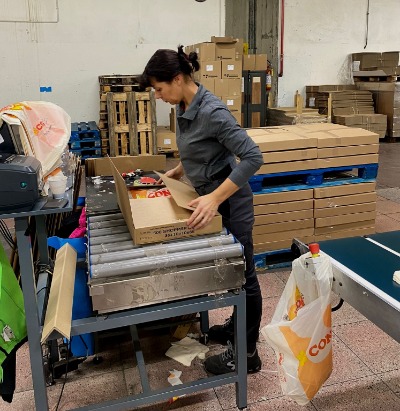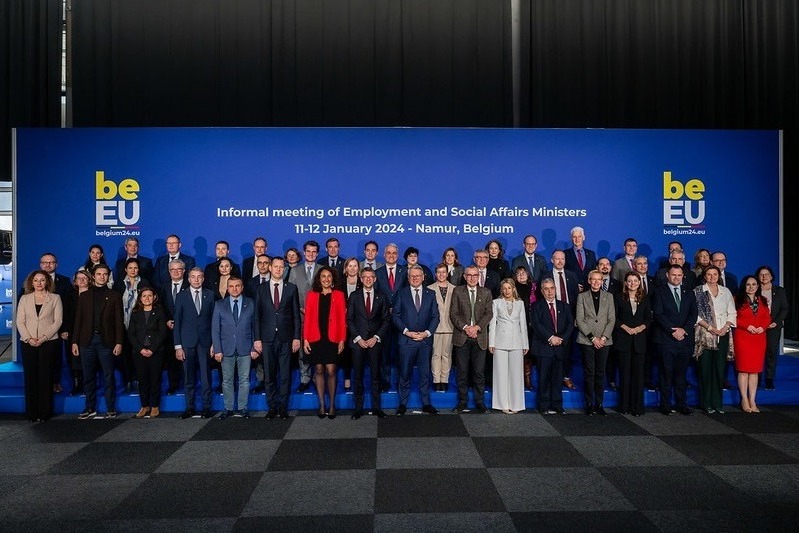Industria Plastica Toscana (IPT) is a worker cooperative based in Scarperia e San Piero, Florence (Italy) that produces thin plastic films for flexible packaging materials.
IPT is a successful example of worker buyouts. It was founded in late 1994 as an initiative of former employees at the I.P.I S.p.A. who constituted a cooperative to take over the company after it had filed for composition with creditors and laid off 80 percent of its 210 employees only to go bankrupt in 1995.
According to Monica Bertuzzi, the current president of IPT, the cooperative model not only ensured productive activity and employment, but also encouraged a great involvement and participation of worker members. Moreover, the cooperative reinvests in the territory by creating job opportunities and involving various local businesses.

The conversion of IPT was possible also thanks to the involvement of Promolavoro, the local employment agency for the promotion of new entrepreneurship, in building the feasibility project, Legacoop Nazionale, and trade unions which facilitated the exchanges with the property. The feasibility study revealed that IPT production needed to be downsized to avoid delocalisation of the plants.
It was on 20 December '94, just before Christmas, that the new cooperative began operations with 20 members, a rented factory, and a share capital of just under half a billion. Since 2002 IPT has seen a progressive increase in production and it has become a leader in the ecological packaging industry in Italy focusing on the innovative aspect of biodegradable and compostable Mater Bì polymers which ensure biological recovery, plastic reduction, and thus, waste reduction.
The collaboration with Novamont, the leading international company in bioplastics and biochemicals and designer of the Mater Bì and Bandera SpA , a leading manufacturer of extruders, provided technical support that was crucial to transform IPT’s conventional plants into suitable ones for bio resin filming and to adapt the processing phases to the specific requirements of the new material. Consequently, the cooperative could replace the traditional plastic shopper with biodegradable and compostable shopper.
Through further investment plans, IPT encouraged a greater diversification of production with a focus on quality and complied with biodegradable and compostable rules and standards. Today, the production is mainly aimed at the large-scale retail trade, and it comprises primary packaging products, especially bags for fruit and vegetable, and secondary packaging goods such as shopping bags for delivery purposes.
IPT currently employs 62 people, of which 57 are worker members and the great majority is represented by women. Its governance is supported by the Board of Directors which takes administrative decisions and convenes General Assemblies to inform and update the members.
As regards the biggest challenges met by the cooperative, President Bertuzzi first recalled the initial years during which IPT was established. Secondly, the implementation of biodegradable and compostable bioplastics represented a challenging step as it implied that all plants had to be adapted to the filming of bio resins in a short time. Also, IPT ran into legislative uncertainties, unfair competition, and the rise of fake producers of biodegradable shoppers but it succeeded in ensuring biodegradable and compostable requirements.

Looking at the future, IPT seeks to become a green cooperative by achieving carbon neutrality. To do so, it aims to increase the productive and energetic efficiency of its machinery through a few initiatives such as the installation of several silos that would optimize the production cycle, the replacement of the roof with a thermal break panel roofing that will allow the recovery of rainwater to feed their steam generator and save in the consumption of public water, and the implementation of solar panels which will develop a more autonomous energy supply system. Also, it seeks to save the costs of disposal of packaging and develop new products for agricultural purposes, for example introducing biodegradable mulch films to reduce plastic footprint.
IPT is setting an example of successful green transition, calling for more incentives for those companies that aim to make their business more sustainable to combat climate change.
Industria Plastica Toscana is a member of Legacoop Produzione e Servizi, our Italian member.









